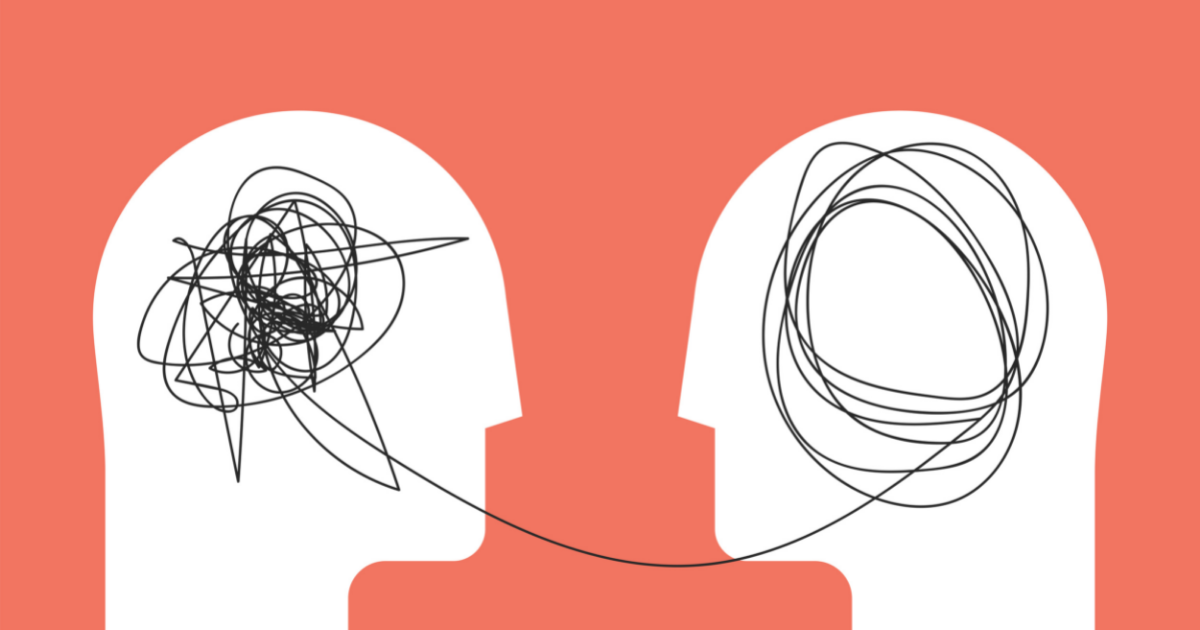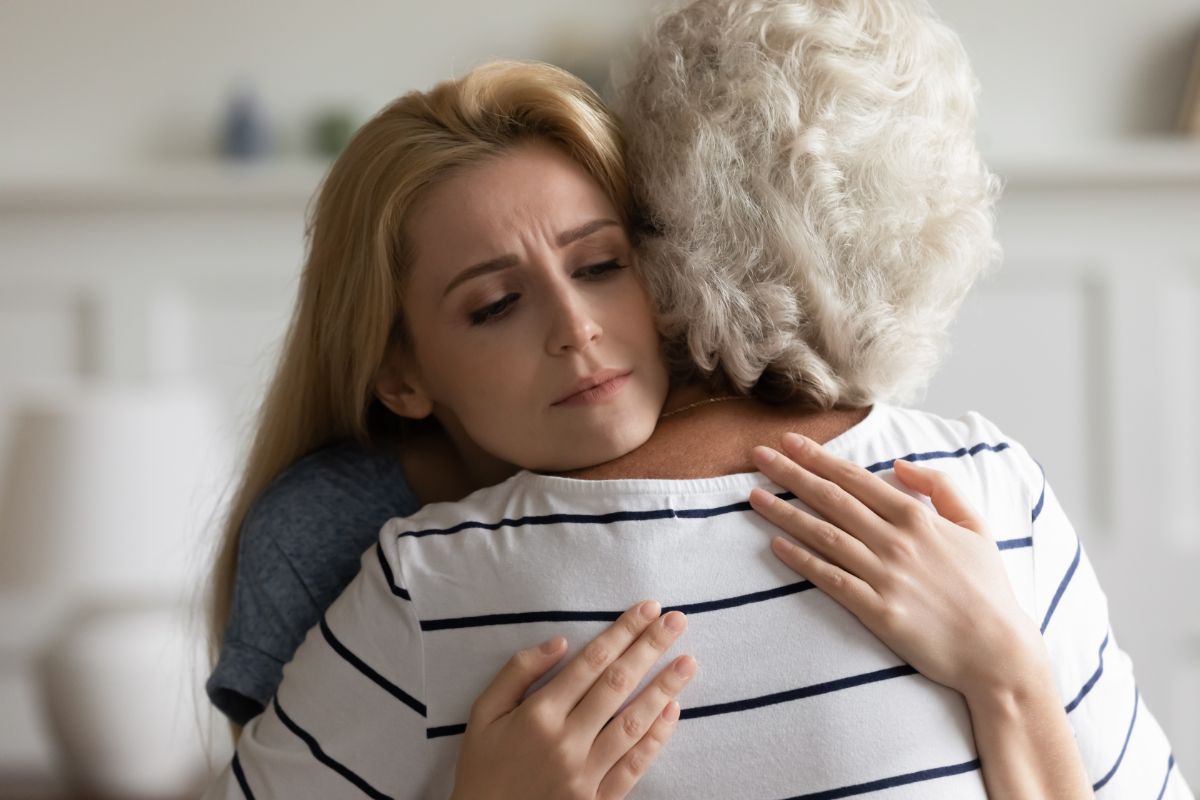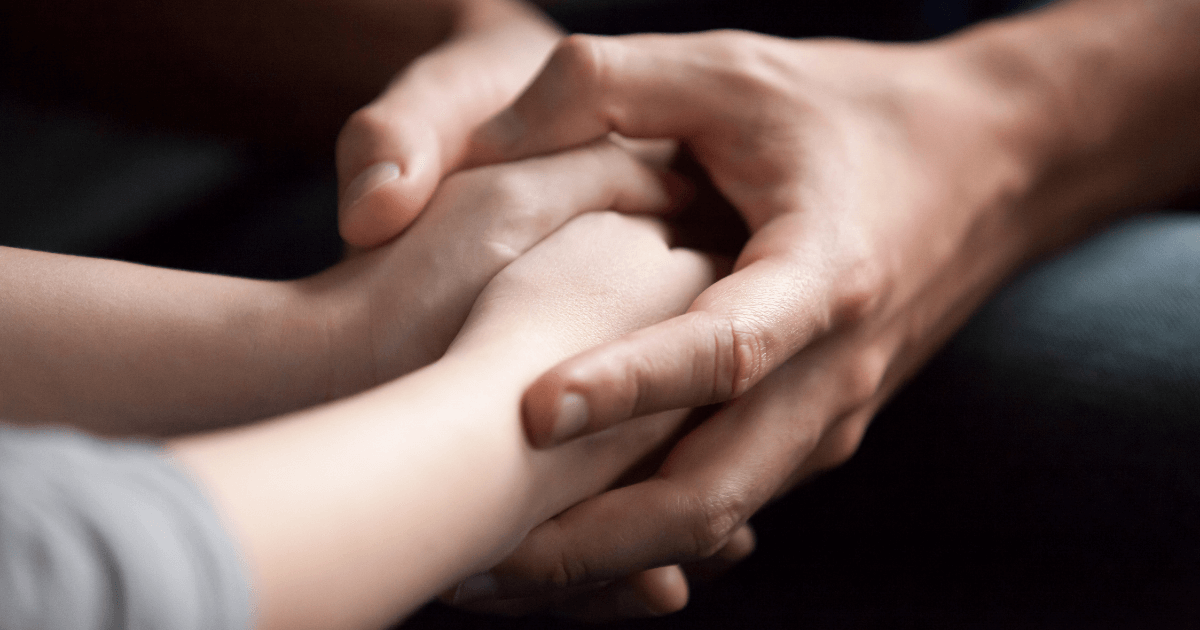
“Grief is a negative emotional reaction to the loss of something important. The unpredicted death of loved ones can evoke a range of feelings like numbness, shock to anxiety, sadness, anger and guilt.”
Witnessing a sudden loss causes a lot of pain and intense longing for the lost loved one. To accept life without having that important person in our life can trigger a variety of emotions. Our customs and rituals provide support to deal with the loss by sharing our grief with extended family and friends. Unfortunately, COVID-19 has even taken away that support due to lockdown restrictions and fear. We not only find ourselves dealing with the sudden loss but also dealing with that alone.
After the sudden loss of our loved ones, we go through a traumatic phase and grieve. During this grieving period, we take time, make space to express our emotions, experience pain, make meaning of the loss, and gradually adapt to the new way of functioning. It is important to know that grieving can interfere with our normal functioning mainly with the way we process new information. It can influence our feelings, cognitive, and behaviour. It is thus important to understand the following:
- How grief influences our feelings, cognition and behaviour;
- Various factors influencing how we grieve;
- Grieving process;
- Useful techniques you could use to assist your loved ones; and
- The support a counsellor can extend to help you
Grief is a negative emotional reaction to the loss of something important. The unpredicted death of loved ones can evoke a range of feelings like numbness, shock to anxiety, sadness, anger and guilt. These feelings are a natural and normal reaction to the loss before we adapt to the loss. Each individual’s response to grieving is unique to their specific loss. It is not uncommon to see people experience sensations in their body like hollowness in the stomach, tightness in the chest, oversensitivity to noise, breathlessness, lack of energy, dry mouth. Some people even report a sense of depersonalisation for e.g “I walk down the street and nothing seems real, including me”.
Our cognitive functioning is altered and we might experience confusion, preoccupation about the thoughts of the deceased and rumination. Thoughts such as “I can’t live without her” or “I’ll never find love again” can then trigger very intense feelings of sadness and/or anxiety which is normal.
Behavioural disturbances can range from sleep and appetite disturbances to absent-mindedness and social withdrawal. These behaviours are commonly reported after a loss and usually correct themselves over time. Some people tend to avoid places or things that trigger painful feelings of grief. They might avoid the place or objects that remind them of their lost loved one. Quickly getting rid of all the things associated with the deceased—giving them away or disposing of them in any way possible even to the point of having a quick disposal of the body—can lead to a complicated grief reaction. This is usually not healthy behaviour and is often indicative of a highly ambivalent relationship with the decease.
“Traumatic losses challenge a person’s sense of himself or herself by challenging the notion that he or she is worthy.”
Some factors that influence how we grieve:
- According to the John Bowlby theory of attachment, attachments develop early in life and offer security and survival for the individual. How an individual processes grief is the result of early attachment of an individual with his/her caregiver. In a normal grieving process, a person with secure attachment goes through different phases of grieving and is able to adapt to the loss and become functional.
- Coping self-efficacy, which means the belief in one’s capabilities to mobilize the motivation, cognitive resources and take action needed to recover from major setbacks. The higher an individual’s coping self-efficacy, the more effective the grief regulation. Research studies have proved that a person with a robust sense of coping self-efficacy has a benign appraisal of threat, weaker stress reactions to them, less ruminative preoccupation with them, better behavioural management of threats, and faster recovery of wellbeing from any experienced distress.
- Sudden losses like the ones we have seen during Covid pandemic specially during the 2nd wave is trauma-based. Traumatic losses challenge a person’s sense of himself or herself by challenging the notion that he or she is worthy. An individual’s self-esteem and self efficacy take a dip. The best intervention is to help the person re-establish the lost sense of control by heightening the awareness of areas to exercise control. For instance, a dependent woman can be assisted to develop skills required to function as an independent person gradually.
“A person with a history of depression or anxiety or ambivalent relationship with the deceased has difficulty in the grieving process. “
Grieving process involves accepting loss, learning from the loss and reinvesting emotional ties in new interests or commitments. The learning is not to suppress grief or eliminate the negative emotions but to regulate them.
Helping someone who has experienced the grief:
- Be a companion, be there for the grieving individual. Let them sit with their grief and express their emotions, do not offer any advice. When they feel ready, encourage them to think that though they have lost their loved one but they haven’t lost the memories or their relationship with the deceased. This helps in continuing bonds with their loved ones and enriched functioning that is fundamental to the grieving process;
- Look at pictures, help them reminisce about the good memories that they would like to share about the deceased;
- Extend support like arranging for taking care of children, managing bills etc;
- Crying is a signal that evokes a sympathetic and protective reaction from others. Not allowing sadness to be experienced can frequently lead to complicated mourning. It is important not to use statements like; Why are you torturing yourself by crying or talking about it OR If you cry your children will feel bad OR I know it’s hard but you will get over it soon instead say I am here for you OR You can call me when you feel like talking OR you can cry it’s ok to be vulnerable OR I have your back, let me know what I can do to make you feel better;
- Help in arranging for rituals. Grieving is a social phenomenon, and the need to grieve with others is important. Arrange for a virtual meet. The degree of emotional and social support from others, both inside and outside the family, is significant in the mourning process. Several studies have shown that perceived social support alleviates the adverse effects of stress and bereavement; and
- Add humour to heal a grieving friend/relative. Remind them how their loved one would have wanted them to be happy. However, be careful and not rush into doing it.
The grieving process is an adaptive response by itself and not a form of pathology. A person experiencing grief does not have to overcome or recover from something. Although some individuals might need an external support of a counsellor to deal with the pain, adjust to the new roles and give meaning to their life after the loss.
“The pandemic has led to widespread loss of life, with numerous people struggling for medical resources.”
What role can a Counsellor play?

- Actualize the Loss: one of the best ways is to help survivors talk about the loss. When did the death occur? How did it happen? Where were you when you heard? All these questions are geared to help the person talk specifically about the circumstances surrounding the death. Many people need to go over and over it in their minds, reviewing the events of the loss, before they can actually come to the full awareness that it has happened.
- Identify and Experience Feelings: helping them accept and work through their pain is a major part of intervention. “What do you miss about them?” “What don’t you miss about them?” These questions will help the bereaved person find a balance between negative and positive feelings for the deceased. Patiently assist in creating awareness of the loss and its impact by encouraging the client to verbalize current and past memories of the deceased. For instance, you could ask them to bring photos of the deceased and talk about the memories associated with them.
- Facilitate the process of ‘meaning making’, to help restore adaptation to the new external world. Sudden death of a loved one is a traumatic experience that can challenge one’s personal identity, assumptions about the world. A counsellor’s/therapist’s role is to assist in finding answers to questions like “What will my life look like now?” “What did the deceased’s life mean?” “How can I feel safe in a world such as this?” and “Who am I, now that this death has occurred?”
- Help individuals recognize, through cognitive restructuring, the way they managed on their own before the loss, and this helps to throw these feelings of anxiety and helplessness into some sort of perspective.
- Create awareness that it is ok to feel sad and cry. Individuals often refuse to cry in front of friends for fear of being judged or losing the friendship. Some suppress their tears in social situations in order to avoid criticism from others.
- Assist living without the deceased by helping people adapt to a loss and to make decisions independently. To do this the counsellor may use a problem solving approach. Ask questions like; What are the problems you are currently facing and how can they be solved?
- Identify complicated grief from normal grief. A person with a history of depression or anxiety or ambivalent relationship with the deceased has difficulty in the grieving process. Relationships characterized by overt or latent anger are often at the core of a complicated grief reaction. A counsellor identifies a person experiencing complicated grief and makes a referral.
- Take into consideration the personality of the mourner while tailoring therapeutic interventions. According to psychologist Bowlby, counsellors should take into account an individual’s age, gender, and coping styles into account when trying to understand an individual’s response to loss. Some individuals have an active emotional coping which means venting out positive and negative emotions, humour by distancing oneself from it and low emotional distress. This allows for handling and problem solving and finding something positive in a bad situation. Counsellors can work with individuals with low emotional coping styles and provide assistance.
- Educate people that mourning is a long-term process and that it’s culmination will not be a pre-grief state. The counsellor can also let mourners know that even though mourning progresses, grieving does not proceed in a linear fashion; it may reappear to be reworked.Some people experience grief more intensely than others. Therapy, therefore, needs to be designed to meet an individual’s needs. The following quote provides a good perspective “Grieving allows us to heal, to remember with love rather than pain. It is a sorting process. One by one you let go of things that are gone and you mourn for them. One by one you take hold of the things that have become a part of who you are and build again.” —Rachael Naomi RemenThe present article seeks to highlight the emotional responses evoked by loss and healthy and constructive ways to cope with the same. The pandemic has led to widespread loss of life, with numerous people struggling for medical resources. Such traumas have both immediate and long term effects, which with proper care and mindfulness, can be overcome. The article seeks to provide insight into the behaviour patterns of those directly affected by such loss, as well as those that wish to help and support people around them. The present article has been written for education and awareness purposes only.
“Anika Bhasin is a Counsellor & Therapist with a practice based in Delhi-NCR. She is also an affiliate counselor with Santulan Clinic.”

